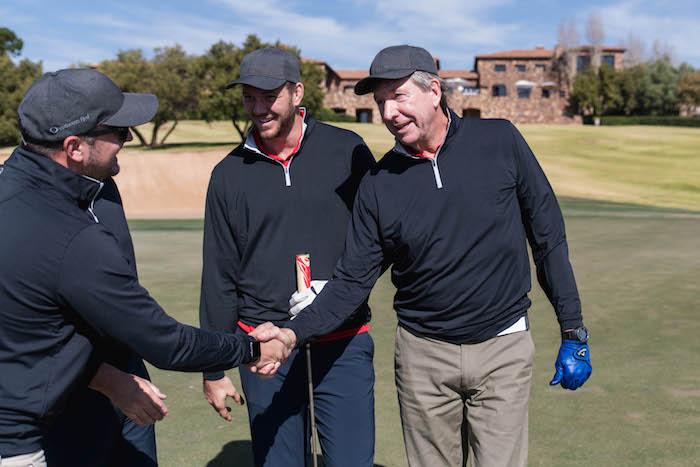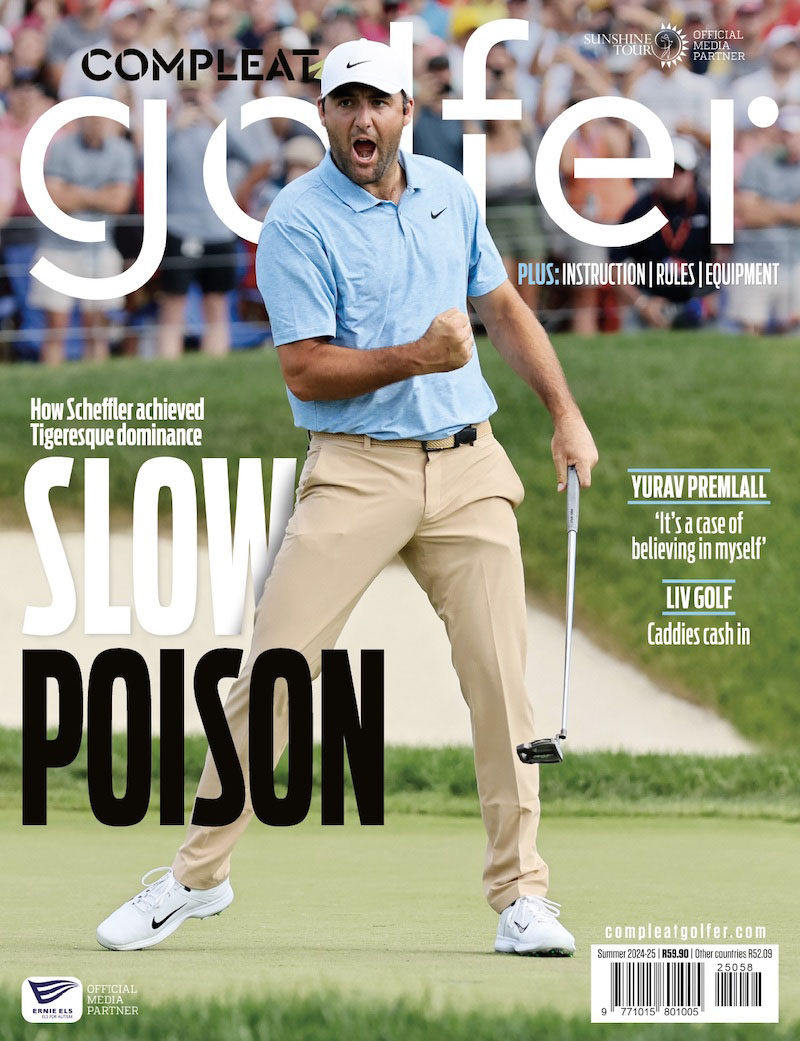Even at an age where he has reported on most things the other members of his fourball have only read about in books, Derek Watts still has the vitality to do a quick handstand alongside the 18th green at Leopard Creek.
In his 30 plus years as one of South Africa’s most recognisable journalists with Carte Blanche, Watts has had his fair share of amazing experiences.
On this occasion, he was enjoying being a member of the Vodacom Red Golf Tour, where he joined several sports stars, other celebrities and lucky Vodacom Red clients who won a place on the tour to play Blair Atholl and Leopard Creek golf courses and do so in style, with luxury accommodation, VIP transfers and charter flights.
‘I’ve been on a few golf tours, but this one was absolutely epic. The way everything was managed – from being picked up by chauffeurs and our names on lockers and lavish gifts – it’s been an amazing experience.
‘My golf is pretty erratic. But I played golf as a kid in Bulawayo, and I guess it’s always good to have that grounding. I guess I’ve been a 17 or 18 handicap my entire life. And I played under 14 E rugby, so I’ve had a great sporting career.’
Much like the evolution of his golf swing over the years, Watts has seen media evolve since the early days of Carte Blanche.
‘You know, when we started we did so with 60 Minutes, which is probably the best investigative programme in the world. We used to run the American or Australian version of their programme, and then put our little programmes alongside it with the meagre budgets we had. So we had to lift our game. But we basically started doing stories in the 60 Minutes mould or confrontational and investigative journalism, and I think it was great that we started with Ruda (Landman) who was such a great, strong drawcard.
‘And the other key to our success was our name, which is French for “Anything goes”. Whenever a weird and wonderful story landed on our desks and somebody said we can’t do that, we said, “Why not? It’s Carte Blanche”. So we did everything from stories about body piercings to jelly wrestling. It was a weird assortment of programmes.
‘But I like where journalism is headed. Print is not dead in my opinion, it’s just been replaced by other print on blogs or websites. So print isn’t dead, it’s just changed its form. Journalism now is very immediate and you’re right there with the action. But it is in many respects taking away the responsibility of journalists because now we’re all journalists with our phones.’
Despite being over two metres tall and an imposing figure, Watts admits there were many times during his career when he was truly afraid.
‘Doing a programme in Sniper’s Alley during the war in Bosnia – that was really scary. Also climbing in the Drakensberg and being pushed to my limits and hanging on by my fingernails while swinging across a gorge. Diving with sharks. There have been many moments where I’ve been nervous. But it’s not those moments that get you. It’s normally the moments where you’re overconfident and think everything is all right that something goes wrong.’
Much like taking your eye off the ball at that crucial moment in your swing.
‘Yes. I can tell you it was such a privilege to play Blair Atholl and Leopard Creek, and I saw them more than most because I visited a lot of the surrounding bush as well. It was just an amazing experience. I have loved every moment.’








